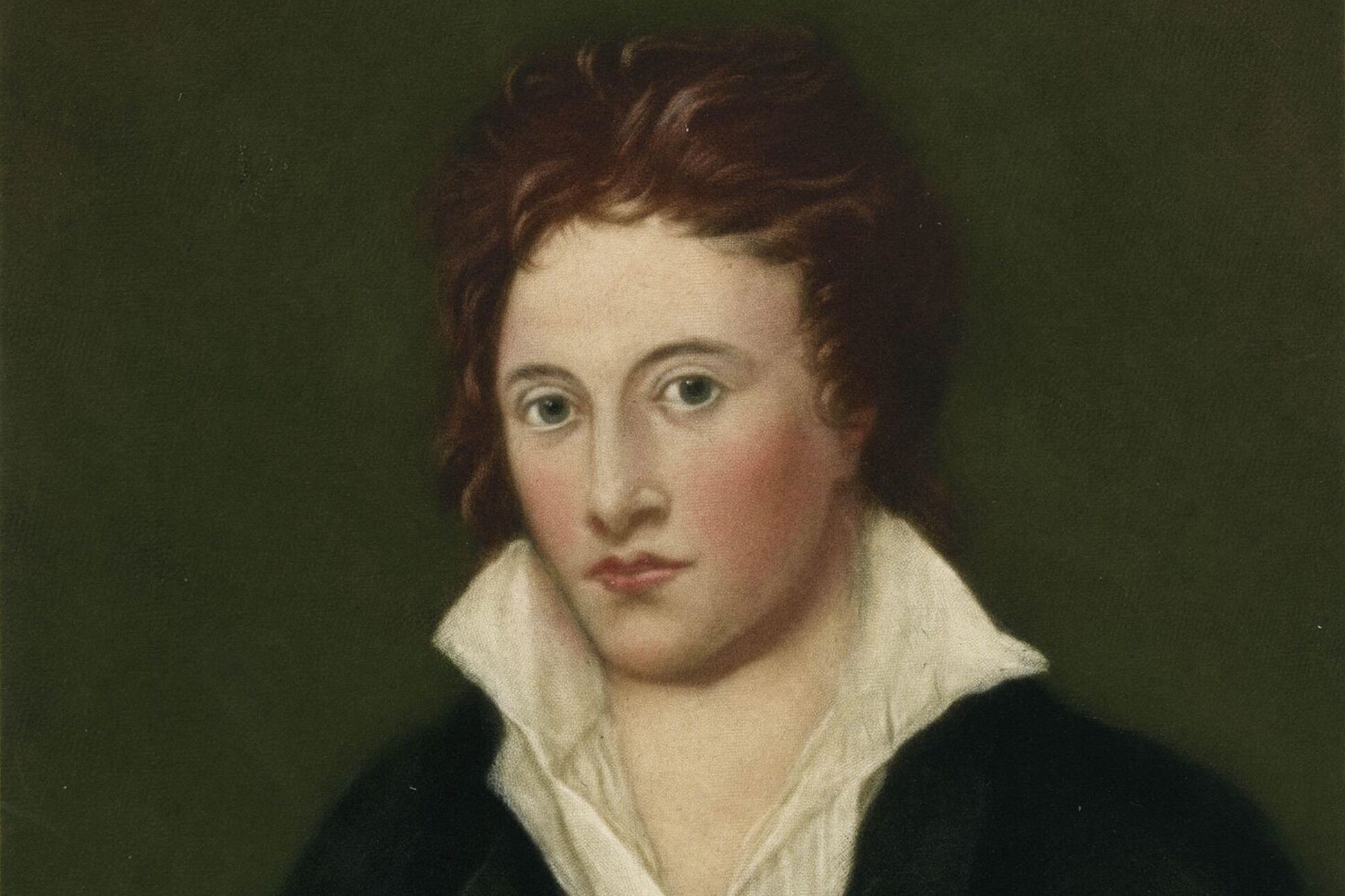Mutability Poem by Percy Bysshe Shelley
Mutability
We are as clouds that veil the midnight moon;
How restlessly they speed, and gleam, and quiver,
Streaking the darkness radiantly!--yet soon
Night closes round, and they are lost forever:
Or like forgotten lyres, whose dissonant strings
Give various response to each varying blast,
To whose frail frame no second motion brings
One mood or modulation like the last.
We rest.--A dream has power to poison sleep;
We rise.--One wandering thought pollutes the day;
We feel, conceive or reason, laugh or weep;
Embrace fond woe, or cast our cares away:
It is the same!--For, be it joy or sorrow,
The path of its departure still is free:
Man's yesterday may ne'er be like his morrow;
Nought may endure but Mutability.
Mutability by Percy Bysshe Shelley is a poem addressing how change and alteration effect human beings and our lives. In stanza one ‘We are the clouds that veil the midnight moon; ’ the metaphor of clouds describes our mutability. The lines ‘How restlessly they speed, and gleam, and quiver, /Streaking the darkness radiantly! —’ reflects upon how our lives are prone to inconstant yet frequent change, yet swiftly pass. Clouds are constantly changing as do we, through various stages of our lives, until ‘soon /Night closes round, and they are lost forever: ’; clouds perish, disappear as do we ‘lost forever’ in death. The simile of the lyre is various images of old age, ‘like forgotten lyres, whose dissonant strings’ observes failing abilities and the forgotten elderly with ‘frail frame’. Days of inactive, sitting, pondering, frequent naps is ‘One mood or modulation like the last.’ We rest rise to feel the emotions of perception in joy or sadness, in the degrees of experience, as Shelley describes, but ‘It is the same! ’; because regardless of how we live or what we experience, all inevitably leads to death. In the mutability of our lives, there are moments when opposing forces of change, may match or negate one another, but ‘Nought may endure but Mutability.’ The theme of ‘Mutability’ is perpetual change.
Shelley at his game again. As a person always distraught and saddened, he reflects upon the ephemeral human feeling and mood. He claims that man is a capricious and unpredictable creation, and that just like his joys will pass, his sorrows will pass with the same speed. Concise outlook on a deep topic.
the whole poem is symbolic. it urges the man kind to do something. it is such nice poem.
There is a flow of life that goes on day to day. The bottom line is change can displace and leave only the concept of mutability left to languish.
Or like forgotten lyres, whose dissonant strings Give various response to each varying blast, To whose frail frame no second motion brings One mood or modulation like the last.
greatly philosophical thought- Man's yesterday may ne'er be like his morrow; Nought may endure but Mutability.
Wow. profundity meets style and the result is what i just read.
Deeply philosophical and sombre, yet so moving. Shelley's poetry always pulls the strings of heart. In my opinion, PBS is perhaps the greatest verse artist in the English language. Certainly the most lyrical and the most versatile.
This poem has not been translated into any other language yet.
I would like to translate this poem
Mutability by Percy Bysshe Shelley is a poem addressing how change and alteration effect human beings and our lives. In stanza one ‘We are the clouds that veil the midnight moon; ’ the metaphor of clouds describes our mutability. The lines ‘How restlessly they speed, and gleam, and quiver, /Streaking the darkness radiantly! —’ reflects upon how our lives are prone to inconstant yet frequent change, yet swiftly pass. Clouds are constantly changing as do we, through various stages of our lives, until ‘soon /Night closes round, and they are lost forever: ’; clouds perish, disappear as do we ‘lost forever’ in death. The simile of the lyre is various images of old age, ‘like forgotten lyres, whose dissonant strings’ observes failing abilities and the forgotten elderly with ‘frail frame’. Days of inactive, sitting, pondering, frequent naps is ‘One mood or modulation like the last.’ We rest rise to feel the emotions of perception in joy or sadness, in the degrees of experience, as Shelley describes, but ‘It is the same! ’; because regardless of how we live or what we experience, all inevitably leads to death. In the mutability of our lives, there are moments when opposing forces of change, may match or negate one another, but ‘Nought may endure but Mutability.’ The theme of ‘Mutability’ is perpetual change.